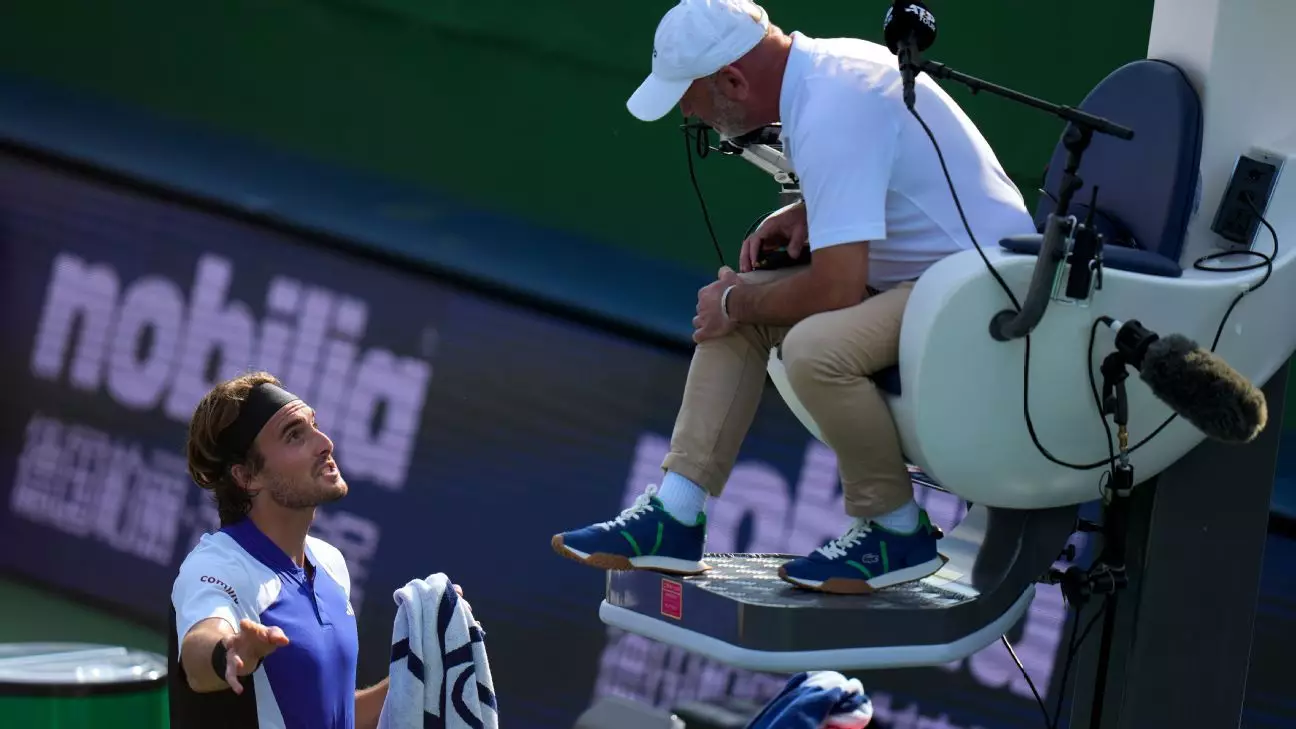Tennis Tensions: The Rising Drama at the Shanghai Masters
Hey there, tennis fans! Picture this: a high-stakes tennis match, two top players battling it out on the court, and then—bam!—an unexpected twist of drama. That’s exactly what unfolded recently at the Shanghai Masters. I was following this tournament closely, and let me tell you, the tension was palpable. It’s not every day that we see such fiery exchanges between players and umpires, but when Stefanos Tsitsipas clashed with chair umpire Fergus Murphy, it was a moment that had everyone talking.
As someone who loves the sport for its grace and sportsmanship, witnessing these moments can be both exciting and unsettling. On one hand, it’s a reminder of the immense pressure players are under; on the other hand, it raises questions about how these tensions are managed. As I watched Tsitsipas argue his case during his match against Daniil Medvedev, I couldn’t help but wonder about the broader dynamics at play in professional tennis and how they impact everyone involved.
Key Takeaways
- Player-umpire conflicts are becoming more frequent in professional tennis.
- The pressure of elite competition can lead to heightened emotions on the court.
- There is a growing need for dialogue around officiating standards.
Umpires and the Art of Enforcement
The role of umpires in tennis is no walk in the park. They’re not just calling shots; they’re maintaining fairness and order amidst intense competition. When Tsitsipas received a time violation from Murphy, it sparked a heated debate not just about that call but about umpiring as a whole. His frustration highlighted a disconnect that sometimes exists between players and officials. This isn’t just about enforcing rules; it’s about understanding the game’s nuances and the human elements involved.
During their exchange, Murphy suggested that Tsitsipas watch more games to better understand umpiring decisions. This comment underscores a divide that can sometimes emerge between those playing the game and those officiating it. Such tensions can affect players’ performance and overall experience on court. It’s crucial for umpires to be equipped not only with rulebooks but also with an empathetic understanding of what players endure during matches.

A key part of Tsitsipas’s argument revolved around the physical demands of tennis. Unlike dart games where precision is key, tennis requires stamina and resilience through long rallies. He passionately argued for leniency in enforcement, emphasizing that players need time to recuperate physically between plays. His remarks remind us all that while rules are essential, they must also accommodate the human side of the sport.
A Pattern of On-Court Outbursts
Tsitsipas’s outburst wasn’t an isolated incident; it reflected a growing trend among players at this year’s Shanghai Masters. Frances Tiafoe also found himself at odds with an umpire over similar issues, though he later apologized for his reaction. Then there was Alexander Zverev, who criticized officiating more broadly, claiming that “umpires are messing up the whole tournament this year.” These instances indicate collective frustration among players—an issue that needs addressing if we are to maintain respect on both sides.
The repeated clashes suggest it’s high time for tennis’s governing bodies to take a closer look at their rules and how they’re enforced. With players navigating pressures from all sides—expectations from fans, physical demands of matches—it becomes clear that something has to give. To ensure fair play and mutual respect continue to thrive in professional tennis, all parties involved must come together to discuss these issues openly.
Final Thoughts
As we watch these stories unfold on court, let’s remember why we love tennis: its elegance, its thrill, its unpredictability. But let’s also acknowledge that it’s a sport played by humans who feel pressure just like anyone else. Moving forward, fostering open communication between players and officials will be key in resolving these tensions. After all, at its heart, tennis is about competition played with integrity—a tradition worth preserving for future generations.
tennis
Shanghai Masters
sportsmanship
umpires
competition


Leave a Reply